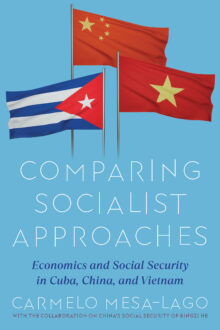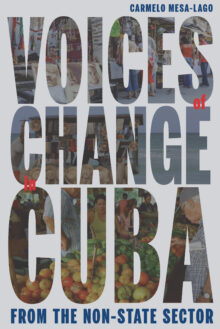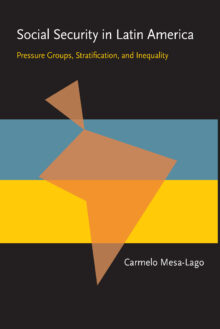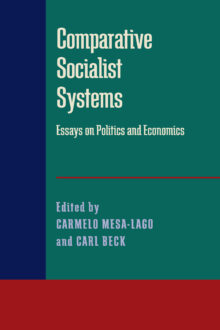
Carmelo Mesa-Lago
Carmelo Mesa-Lago is distinguished service professor emeritus of economics and Latin American studies at the University of Pittsburgh. He has published about ninety books in seven languages across thirty-nine countries and received many awards, including the International Labour Organization Decent Work Research Prize (shared with Nelson Mandela) for his work on social protection in the world.
Comparing Socialist Approaches
Economics and Social Security in Cuba, China, and Vietnam
In Comparing Socialist Approaches, Carmelo Mesa-Lago examines the two main socialist models across Cuba, China, and Vietnam to compare central planning and socialist markets. Under the Cuban central plan, large state enterprises have been unable to generate economic growth, even with mild structural market reforms and a small controlled private sector. In the Sino-Vietnamese model of a socialist marketplace, dynamic private enterprises of all sizes, together with large state enterprises, operate under a decentralized plan with state regulation and control. This has allowed for accelerated growth and social improvement. The two models are contrasted across five major economic policies: ownership of the means of production, agrarian reform, industrialization processes, employment, and currency and exchange rate unification. Mesa-Lago argues that the socialist market model has a better performance than the central plan across economic and social indicators. He then recommends policies to improve social protection in the three countries.
Voices of Change in Cuba from the Non-State Sector
More than one million Cubans, representing thirty percent of the country’s labor force, currently make up the nonstate sector. These include self-employed workers and micro-entrepreneurs, sharecropping farmers, members of new cooperatives, and buyers and sellers of private dwellings. This development represents a crucial structural reform implemented by Raúl Castro since becoming Cuba’s leader in 2006, and may become the most dynamic economic force for the country’s future. Despite this phenomenon, little has been published about the demographic makeup of this group (age, gender, race, and education), as well as their economic conditions and aspirations. Based on eighty in-depth interviews recently conducted in Cuba, this book captures actual voices from this evolving economic sector. It details workers’ level of satisfaction with what they do and earn, profits (and how they are allocated between consumption and investment), plans to expand their activities, receiving foreign remittances and microcredit, competition, forms of advertising, and payment of taxes. Perhaps most revealing are the speakers’ views on the obstacles they face and their desires for change and improvement. As such, the book offers fascinating insights into today’s Cuban economy from the nonstate sector, while also reflecting on its potential for development and the obstacles it faces.
Social Security in Latin America
Pressure Groups, Stratification, and Inequality
A comprehensive and sophisticated study of the relationship between social security policy and inequality in Latin America. Individual case studies of Chile, Uruguay, Peru, Argentina, and Mexico are presented, that provide a historical analysis of each country's social security policy, the pressure groups involved, the present structure of the systems, and a statistical examination of the inequality among these pressure groups.
Comparative Socialist Systems
Essays on Politics and Economics
This volume advances the methodology to compare socialist systems throughout the world by combining both theoretical approaches and empirical comparisons in a multidisciplinary and systematic fashion. Of the sixteen essays, all but two include the Soviet Union, all refer to Eastern Europe, six include China, and five include Cuba.




